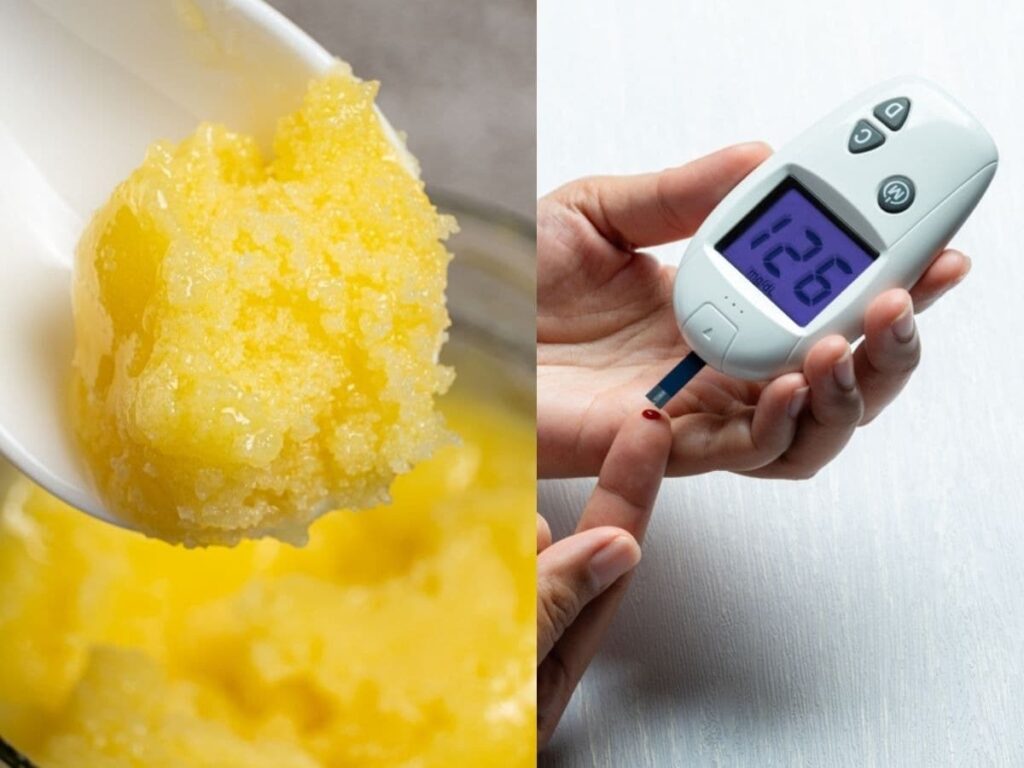Ghee, a traditional clarified butter used in various cuisines, enhances the flavor of dishes significantly. It is known for its rich aroma and nutritional benefits. However, for individuals with diabetes, the question arises: is ghee a healthy addition to their diet? In this article, we will explore the relationship between ghee and diabetes, its potential benefits, and important considerations for those managing their blood sugar levels.
Understanding Ghee: A Nutritional Overview
Ghee is produced by simmering butter to separate the milk solids and water content, resulting in a concentrated fat. It has been a part of Indian and Middle Eastern cooking for centuries and is celebrated for its unique taste and health benefits. Here’s a quick nutritional profile:
| Nutrient | Amount per 100g |
|---|---|
| Calories | 876 |
| Fat | 99.8g |
| Saturated Fat | 62g |
| Vitamin A | 700μg |
| Vitamin E | 2.3mg |
| Butyric Acid | 3.5g |
Benefits of Ghee for Diabetics
While ghee is high in saturated fats, it also possesses certain properties that may be beneficial for individuals with diabetes:
1. Healthy Fats and Satiety
The fats in ghee can promote a feeling of fullness, which may help control overall food intake and contribute to better weight management—an essential factor in managing diabetes.
2. Anti-Inflammatory Properties
Ghee contains butyric acid, which has anti-inflammatory effects. Research suggests that reducing inflammation may play a significant role in diabetes management.
3. Source of Energy
Ghee provides a quick source of energy without causing rapid spikes in blood sugar levels when consumed in moderation. It can be a practical energy source for those undergoing physical activity.
4. Nutrient Absorption
Some vitamins, particularly fat-soluble vitamins A, D, E, and K, require dietary fats for absorption. Incorporating ghee into meals can enhance the body’s ability to absorb these essential nutrients.
Key Considerations for Diabetics
Although ghee has potential benefits, it is crucial for individuals with diabetes to consider the following:
1. Portion Control
Due to its high caloric density and fat content, portion control is essential. Moderation is key to preventing excessive caloric intake, which can lead to weight gain and hinder blood sugar control.
2. Quality of Ghee
Opting for organic, grass-fed ghee may provide higher nutritional quality and better health benefits compared to regular ghee. Always check the labels to ensure you are choosing a high-quality product.
3. Individual Responses
Each individual’s response to dietary fats can vary, making it crucial for diabetics to monitor their blood sugar levels to understand how ghee affects them personally.
Conclusion
Incorporating ghee into a diabetic diet can provide several potential benefits, including healthy fats, anti-inflammatory properties, and improved nutrient absorption. However, it is important to do so with caution and moderation, as excessive consumption can lead to undesirable effects. Always consult healthcare professionals or a registered dietitian before making significant dietary changes, especially when managing diabetes. By making informed decisions, individuals can enjoy the rich flavor of ghee while effectively managing their health.
